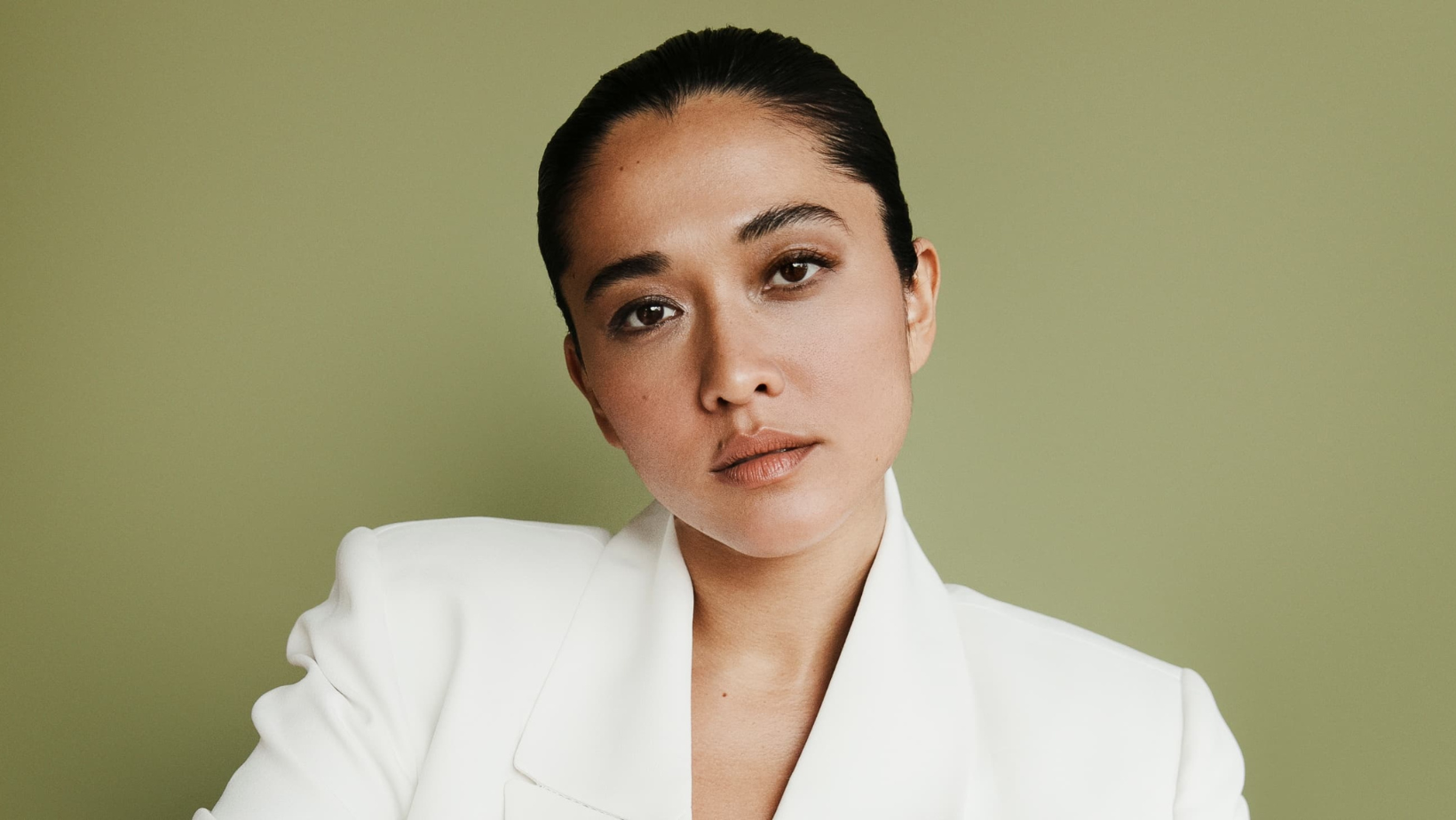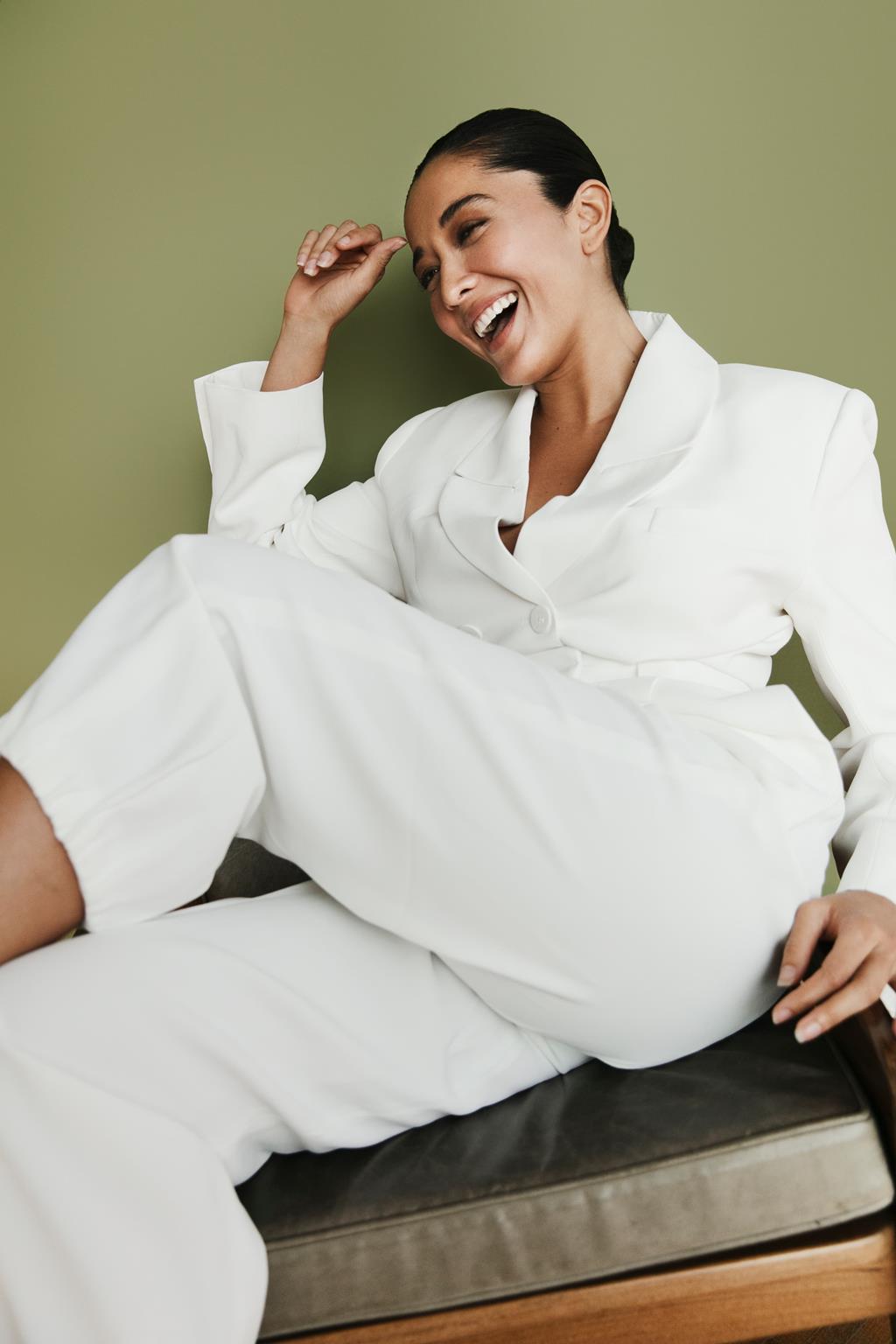
Back on Globo with the soap opera “Volta por Cima”, Jacqueline Sato plays Yuki , an intelligent and resilient young woman who faces a past abusive relationship. In addition to her acting on screen, the actress, presenter and environmental activist stands out as an ambassador for Greenpeace Brazil and founder of the animal protection association House of Cats, which has already helped more than 2,000 cats find homes. Jacqueline also launched the program “Asian Women” this year on the E! channel , promoting representation and breaking stereotypes about Japanese-Brazilian women.
By creating and presenting the program “Mulheres Asiáticas,” you took an important step towards celebrating diversity and deconstructing prejudices. How did you come up with the idea of addressing Asian representation in such a direct way? And what was the emotional impact of hearing so many powerful stories?
I have a career spanning almost 15 years, and it is true that I missed content like this. I created something that I always wanted to see on TV: more than one of us occupying this space, being able to reveal how diverse we are, going far beyond what many people still think about us, breaking stereotypes and prejudices. Valuing our identities and unique stories. This is the first time this has happened on TV in Latin America. Even today, we are often not seen as or do not feel like we belong to the country where we were born. The program comes to celebrate our existences with pride. We gathered stories of 13 inspiring women, ranging in age from their early 20s to their 80s, and who have different professions and life trajectories. And all of this done by women who belong to the behind-the-scenes section as well, in all the creative leadership roles. I get emotional when I remember each one of them. And I get even more emotional when I remember the comments, messages, and approaches on the streets from people who were deeply touched by the content. For many of them, it brought a sense of relief, of “finally, a program that represents us with the depth and genuineness we deserve”, and for others, they began to better understand their own identities and issues, because of the program and they truly thank me. I am the one who is grateful to each and every person who shared with me what they felt when watching the program, after all, we create to reach people, and I am very happy that it reached so many people and has already generated so much transformation and discussion.
Your character Yuki , in “Volta por Cima”, brings up important themes, such as abusive relationships. What was the process like of creating this character and giving life to someone who faces such delicate challenges?
This is a very serious subject. Many women are in situations of abuse and cannot see any way out of it. I really like the fact that Yuki managed to break out of the cycle, to break the pattern, once. She is afraid, she has traumas, but she is aware of the gravity of the situation and is careful not to let all this terror happen again. I think it is good to have a woman who has a past that disturbs her, but does not paralyze her. A strong and intelligent woman finds ways to move forward. The process is always very individual, internal. Starting from the text, I always try to see what resonates most with me, what brings up the most feelings. Because even if there are things I have never experienced, just imagining the situation affects me a lot. I have never been in a relationship that even comes close to what she is in, and bringing this to life has been a very challenging process, which I am loving.
As an ambassador for Greenpeace Brazil, you visited the Tumbira community and the Rio Negro Reserve. What was the most memorable moment of this experience? And how did these experiences change your perception of sustainability and environmental activism?
Wow, it’s really hard to choose just one. I’ll go with 3:
1- When I saw a Samaúma tree for the first time. The size of this tree is so enormous that it made me pause, rethinking existence and the way we have lived. Everything changes perspective in the Amazon. What you considered important and important is no longer so. You start to give new meaning to many things. And I, who was already engaged and fought for socio-environmental causes, became even more motivated to expand my possibilities for action.
2- Hearing from locals that they were actually illegal loggers, and it took them a long time to believe that it was possible to make a financial return with the forest standing. I was moved to see how much they had transformed in such a short time, individually and collectively. Today, the RDS has schools, a market, internet access, there is no shortage of food, and they live off the money they earn from tourism, gastronomy and crafts. Something that was unimaginable until recently. It became clear that for a long time they were kept in that situation because of the interests of those who only wanted to profit, without thinking about the consequences and humanity.
3- Seeing the pink dolphin for the first time. A creature that I was both enchanted and worried about at the same time, when I learned about it as a child, in science class, because it was already at risk of extinction at the time. I also read about it in literature class and it made me very curious. So seeing it in person really touched me.
It is important to know. Knowing it up close brings even more desire, eagerness, and urgency to make the necessary changes! I left feeling even stronger and more touched by the experience and by everything that can only be experienced there.

In “A História Delas,” you play Mirella, a former model with marital dilemmas. How do you see the evolution of female narratives in series and how do you feel about giving voice to such rich and complex stories?
When there are women behind the camera in decision-making positions, everything is much better. No one can tell our stories better than us. And this team included many women, in the script and in the direction, and a director who was aware of this importance. Because of all this sensitivity and respect, I believe we achieved such a high-quality result. I love complex characters, because they are more human. They make us identify with them.
Founding the House of Cats and helping more than 2000 felines is an incredible initiative. What was the most exciting case you experienced in this journey of rescue and responsible adoption?
Ahh , thank you! Almost 3,000 already! I have experienced many emotions because of these rescued animals. But there is one story that really struck me, which is when a girl went to adopt and her mother kept telling her daughter to take the puppies. And she turned to her mother and said: “Mommy, the puppies are beautiful, but their mother has less chance of being adopted. I want her”. I was shocked and moved by the awareness of this 8-year-old girl.
Your career includes soap operas, films, series and even TV shows. How do you balance so many facets of your career, including activism, and what has motivated you the most to continue exploring new challenges?
I’ve always wanted this. I’m very happy to look back and see that I’ve been able to achieve so many things and grow in each one of them. It motivates me to want even more because today I know it’s not impossible. It may have been difficult and challenging, but I’ve achieved much of what I dreamed of. Many steps have already been taken, and I feel more confident and capable of achieving even more. I think what motivates me the most is helping to generate positive changes in the world. Whether as an actress, producer or activist, feeling that my work is part of something bigger and that it will change someone’s life for the better in some way, even if it is just by bringing them a new point of view, an emotion, a reflection, is something important to me. I believe in the power of storytelling.
With so many achievements in the artistic and social fields, what was the biggest lesson that your career and activism taught you about resilience and purpose?
Don’t give up, even if everything seems to be going wrong and seems impossible. Because that’s how it was for me many times. Listen to that inner voice, that deepest desire and hold on to it to face adversity. Believe that everything is important, even the little things, the little ideas, actions, small roles. Everything adds up to building this path that is unique, and is only yours, and can unfold into something bigger that, sometimes, not even we know. For example, in relation to House of Cats, rescuing the first kittens was an act that may be considered small for many people, but look what it has become. Regarding Greenpeace, I have always admired and collaborated by publicizing their actions, and I never imagined that one day I would become an ambassador. And as an actress, I have many examples, but I bring here my first role in a series (“Psi”) in which it was not so big, but I did my best and it opened many doors for me, and continues to do so. Mirella from “A História Delas” was an invitation from Diana Galantini , who was the casting producer for that first series. One of the assistant directors of that series, Isabel Valiante , also recommended me for other jobs when they were thinking of someone with my profile. Today, she is a director and has already called me for auditions. Thiago Dottori, who was the scriptwriter for that same work, has also recommended me for roles. I consider what is done on stage, and off stage, to be important. Everything counts. It may seem like the least, but education, professionalism, and arriving at work with a positive energy are also taken into account and are remembered by people. Now, as the creator and producer of “Asian Women”, I have experienced this connection with purpose and resilience even more intensely. There were challenges in different areas, many of them for the first time in my life, and all at the same time. When the idea is yours, the responsibility and the axis to be maintained to achieve the result is even greater. Let’s say that the race is longer, it starts before with the creation, script, pre-production, production, and extends until later with post-production, launch and continues reverberating. In challenging moments, I always remembered why I had created that project, what was the greater purpose behind it all so as not to stray from its essence. It worked and I will remember all these lessons learned in whatever path I take.
Follow Jacqueline Sato on Instagram


